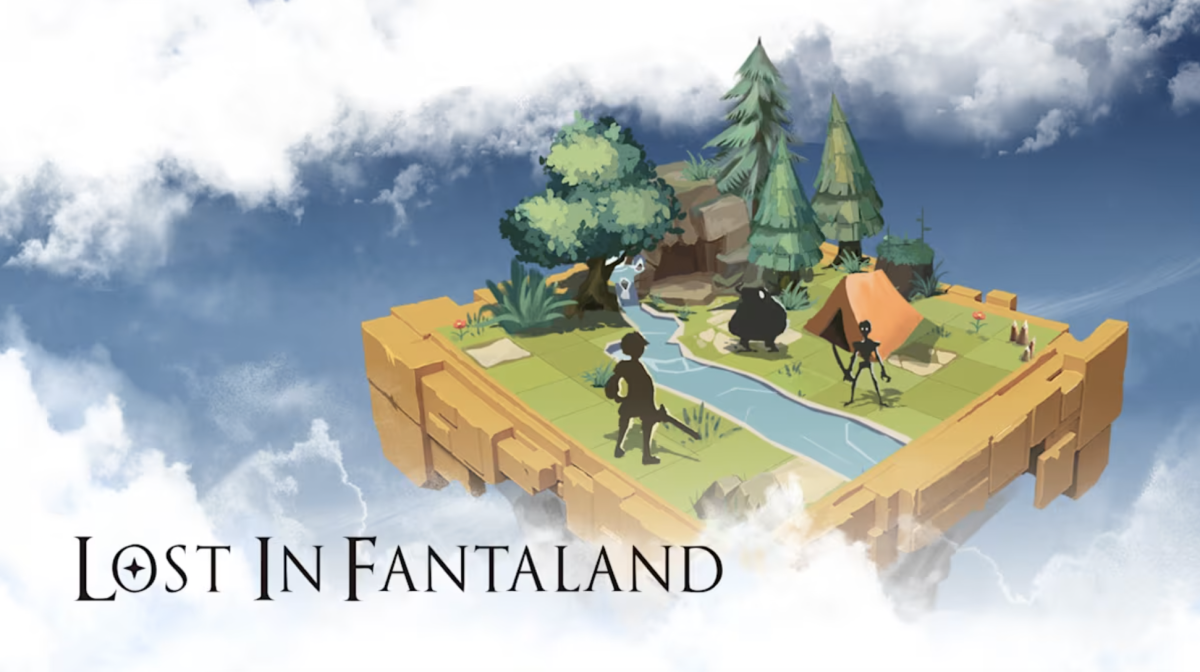**Lost in Fantaland Review: Promising Roguelike Strategy with Rough Edges on Switch**
*Lost in Fantaland* is a roguelike strategy game and deckbuilder that has recently made the leap to the Nintendo Switch. While the game shows definite potential, it also feels like it isn’t quite 100% ready yet.
The general mechanics are solid and provide a good foundation for strategic gameplay. However, the localization is unfortunately awkward to the point of being distracting. Some of the cards you collect have unclear descriptions, which can make understanding their effects challenging. As a result, the gameplay can occasionally feel clunky and in need of further refinement through patches.
—
### Story and Characters
*Lost in Fantaland* is an isekai story where your avatar is transported into the titular world to act as its hero. Your goal is to navigate through various challenges, battling enemies and bosses, and ultimately defeat the Big Bad. After completing a run, you can play again either as a different character or replay with the same job to experience alternative outcomes.
The story, however, is barely present and does little to immerse players. While story depth isn’t necessarily a dealbreaker for a roguelike (games like *Into the Breach* manage to engage players with minimal narrative), *Lost in Fantaland* suffers from inconsistent elements. For example, the eShop description boasts “choose one of six unique characters,” which isn’t quite accurate.
Instead, there are three main character roles: Mage, Trickster, and Warrior. These roles are further divided into six specializations. The Warrior class offers the most options, including Berserker, Brave, and Starshield Knight.
—
### Localization Issues
Once in-game, players will encounter awkward lines such as “This looks like. a live stage in the wild,” or “Why am I standing on a sweeping robot?” These localization problems impact gameplay clarity and immersion.
For instance, one difficulty option limits how far you can progress through the story but refers to Soul Orbs—important for character development—as “the currency of growth,” which can be confusing.
Card descriptions often read awkwardly, leading to potential misunderstandings. Consider these examples:
– **Charge Defense:** “Gain 8 Armor. When playing, if the number of playing cards reaches 3, gain 1 AP next turn.” — The phrasing here is unclear and could mislead players about its activation conditions.
– **Root Strike:** “Consume all MOVP and every MOVP consumed deals 4 damage.” This card is a useful attack, but the description doesn’t clarify that “MOVP” refers to movement points, which could confuse new players.
– **Throwing Knife:** Its description reads, “Deal 8 damage to the target up to 3 grids away in a direction,” but it fails to specify which directions are possible. The limited space for text hampers clarity here.
The developer appears aware of these issues, having admitted in a Steam forum post that AI-based translations were partially used initially.
—
### Gameplay Overview
Despite the localization setbacks, *Lost in Fantaland*’s core gameplay is based on solid and familiar roguelike and deckbuilding mechanics:
– Each turn, you have a limited number of spaces to move and a set amount of Action Points (AP) to spend on card-based actions.
– As the “hero” of Fantaland, you possess mild precognitive abilities that allow you to predict whether enemies will attack or defend.
– Roles influence playstyle: Mages specialize in ranged combat, while Warriors focus on melee tanking.
– Winning battles rewards you with new cards, and various Artifacts and Items can enhance your abilities and survivability.
– The game’s chapters progress through selecting nodes on branching paths, typical of roguelike structure. Failing a run means you start anew.
—
### Final Verdict
*Lost in Fantaland* is built on fairly sound gameplay concepts and has the potential to grow into a rewarding roguelike strategy experience. However, it urgently needs a thorough rework of its localization and polishing by a fluent editor.
At best, the awkward translations make the narrative and card descriptions less engaging. At worst, they can lead to poor decisions by players who don’t fully understand a card’s true effect until they experiment with it.
For now, *Lost in Fantaland* feels like a work in progress. With a few patches and improved localization, it could be worth revisiting in the future.
—
**Availability:**
*Lost in Fantaland* is available on Nintendo Switch, PlayStation 5, and PC.
https://www.siliconera.com/lost-in-fantaland-still-needs-work-on-its-translation/?utm_source=rss&utm_medium=rss&utm_campaign=lost-in-fantaland-still-needs-work-on-its-translation


